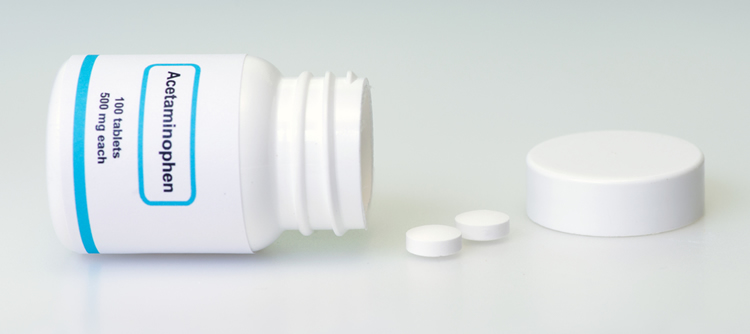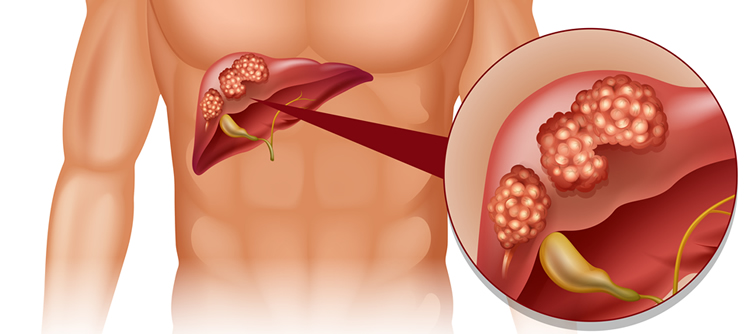
Acetaminophen is the most common drug ingredient in America. 24.6 billion doses were sold in 2008 alone. (1)
You’ll find it in over 600 prescription and over-the-counter medications, including, Tylenol, Nyquil, Midol, Alka-Seltzer Plus, Sudafed, and hundreds more. (2)
It’s meant to relieve pain and fever. But a growing body of research — as well as harsh warnings from the Food and Drug Administration (FDA) — reveal a sinister side to this popular drug.
Are you one of the millions who pop an Excedrin or Tylenol to relieve a splitting headache or to soothe aching joints?
You may think those drugs are safe — after all, you can buy them without a prescription at your local CVS or Walgreens.
But you’re wrong… dead wrong.
Here’s what you need to know about the overlooked dangers of America’s most popular drug.
5 Hidden Health Risks of Acetaminophen
Here are the facts:
- The National Institutes of Health estimates that accidental acetaminophen-associated overdoses account for about 78,000 emergency room visits per year.
- Another 33,000 people are hospitalized every year due to acetaminophen overdoses. (3)
- And the FDA has linked as many as 980 deaths per year to drugs containing acetaminophen.
Now let’s look in more detail at specific acetaminophen-related health risks.
1. Acute Liver Failure

A healthy liver is essential for energy, maintaining a healthy weight, detoxification, protein synthesis, and nearly 500 other vital functions.
Both prescription and OTC drugs containing acetaminophen can cause severe damage to your liver.
How big is the risk?
51% of acute liver failure cases in 1998 — 2003 were caused as a result of acetaminophen-induced poisoning. (4)
Drugs with acetaminophen cause more cases of acute liver failure than alcohol abuse.
==========================================================================================
Related Content: Do You Eat These 5 Liver-Harming Foods?
==========================================================================================
2. Increased Risk of Psoriasis and Psoriatic Arthritis

Psoriasis is a skin disease that causes itchy, scaly rashes and crumbling nails. Psoriatic arthritis is a painful inflammatory arthritis that about 30 percent of people with psoriasis develop.
Long-term use of acetaminophen increases your risk for both of these conditions.
One study found that women who use acetaminophen for to or more years are three times as likely to develop psoriasis and twice as likely to develop psoriatic arthritis as women who avoid this drug. (5)
3. Attention Deficit Hyperactivity Disorder and Autism

From Oxford University Press:
“A new study published in the International Journal of Epidemiology has found that acetaminophen, which is used extensively during pregnancy, has a strong association with autism spectrum symptoms in boys and for both genders in addition to attention-related and hyperactivity symptoms.” (6)
Acetaminophen is bad news for mom and baby.
4. Boost Blood Pressure

Folks with cardiovascular disease have long been told that acetaminophen is a safer way to relieve aches and pains than aspirin or nonsteroidal anti-inflammatory drugs like ibuprofen. Now, Harvard Medical School warns that isn’t the case.
Harvard researchers warn that the standard daily dosage of acetaminophen prescribed for pain relief (1,000 milligrams) is all it takes to increase blood pressure. (7)
===========================================================================================
Warning: Do You Take Acetaminophen or NSAIDs for Pain Relief?
===========================================================================================
5. Increased Risk of Hearing Loss

We all want to remain able, active, and independent as we age. Unfortunately, acetaminophen use may pose a risk to one of your vital senses: your hearing.
A study published in the Harvard Gazette warns that women who reach for Tylenol to ease their aches and pains are at an “increased risk of hearing loss”. (8)
The study cautions that the more often a woman uses acetaminophen medications, the higher her risk of hearing loss. Also, the link between these medications and hearing loss tends to be greater in women under 50 years old.
Acetaminophen: Worth The Risk?

Acetaminophen was first introduced to the U.S. market in 1953. It gained in popularity throughout the late-70’s and 80’s.
Today, drugs like Tylenol, Excedrin, and Midol are often the first things we reach for when we suffer a headache, backache, sore joints, or fever.
Is the risk worth it?
As you contemplate your answer consider this:
In addition to the deadly health risks we’ve reviewed in this article, Tylenol and other common drugs that contain acetaminophen aren’t even that effective at reducing pain.
In one study, Tylenol did not relieve knee arthritis pain much better than a placebo pill. (9)
In another study, acetaminophen did little to relieve acute back pain. (10)
===========================================================================================
Related Content: Magnesium — Nature’s Perfect Pain Reliever!
===========================================================================================
To my mind, acetaminophen simply isn’t worth the substantial risks. Not when safer, all-natural alternatives exist.
What do you think? Have you been following the news and FDA warnings about acetaminophen? Are you worried about the risks posed by this incredibly common drug? Please let me know in the comments section below — I’d love to hear from you!
And if you found this article helpful, would you please share it by clicking or tapping on the social share icons (Facebook, Pinterest, etc.) at the bottom of your screen? Thank you!


